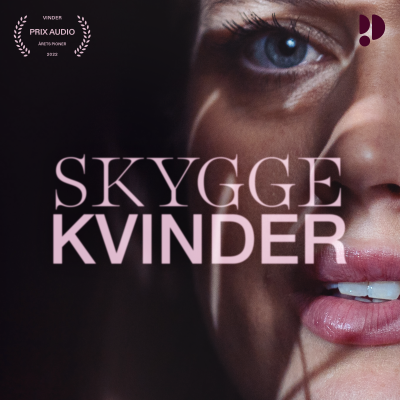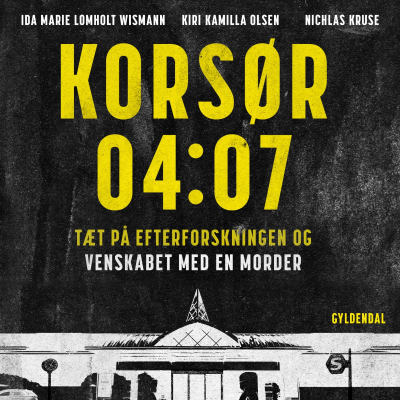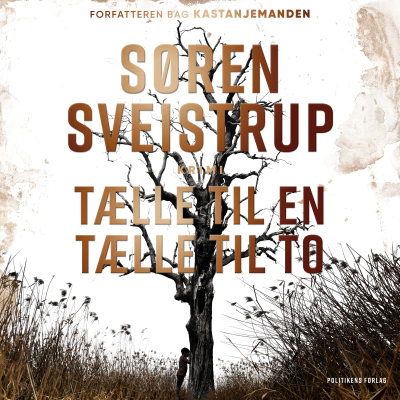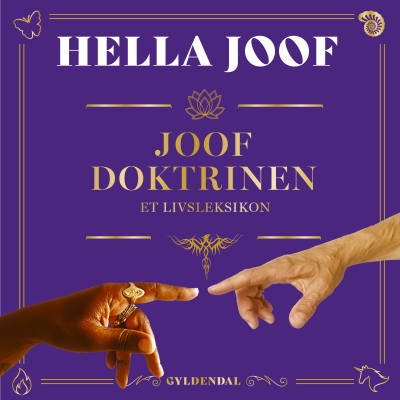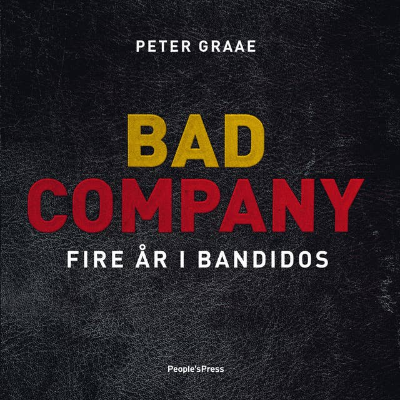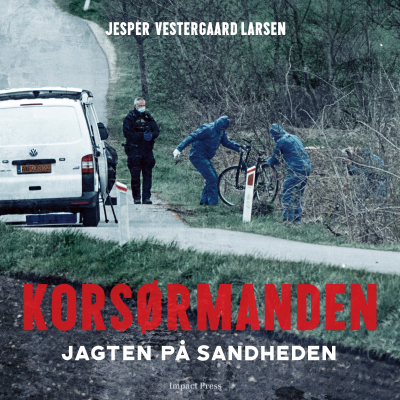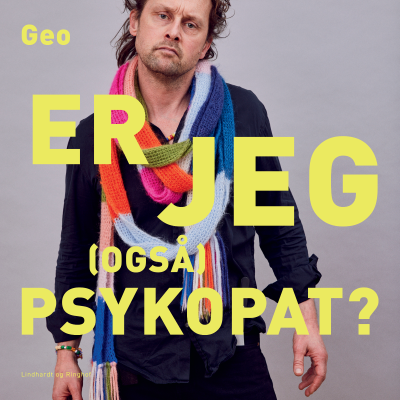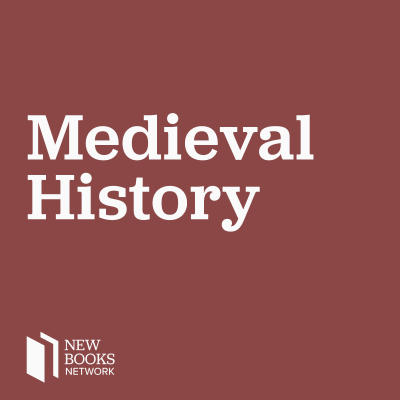
New Books in Medieval History
Podcast af New Books Network
Interview with scholars of the Medieval World about their new books
Prøv gratis i 3 dage
99,00 kr. / måned efter prøveperiode.Ingen binding.
Alle episoder
531 episoderDrawing together the evidence of archaeology, palaeoecology, climate history and the historical record, this first environmental history of Scotland explores the interaction of human populations with land, waters, forests and wildlife. A Land Won From Waste: Scotland AD 400–1400 [https://birlinn.co.uk/product/a-land-won-from-waste/] (John Donald/Birlinn, 2025) by Professor Richard Oram takes the reader from the climatic highs of the Late Iron Age to the depths of the war-torn and plague-ravaged fourteenth century. Departing from traditional frameworks that divide Scotland’s history into periods based on kings’ reigns or major political events, discussion instead follows the major shifts in climate that divide these fourteen centuries into epochs, each with its own distinct characteristics. Starting amidst the fields and forests shaped across the eight millennia of Scotland’s prehistory, where we encounter the imprint of past generations of hunters and gatherers, farmers and fishermen, as well as the legacies of climate impacts and pathogens, the book explores the depths of the Late Antique Little Ice Age and the long climb back to the ‘Golden Age’ of the twelfth- and thirteenth-century Medieval Climate Anomaly, to end with the slide through crop-failure, famine, war and disease of what is reputed to be the ‘worst century in human history’. Also listen to Dr. Oram’s previous New Books Network interview [https://newbooksnetwork.com/where-men-no-more-may-reap-or-sow] on the “sequel” to this book, covering the period 1400-1850: Where Men No More May Reap or Sow: The Little Ice Age. This interview was conducted by Dr. Miranda Melcher whose book [https://www.bloomsbury.com/uk/securing-peace-in-angola-and-mozambique-9781350407930/] focuses on post-conflict military integration, understanding treaty negotiation and implementation in civil war contexts, with qualitative analysis of the Angolan and Mozambican civil wars. You can find Miranda’s interviews on New Books with Miranda Melcher [https://newbooksnetwork.com/category/special-series/new-books-with-miranda-melcher], wherever you get your podcasts. Learn more about your ad choices. Visit megaphone.fm/adchoices [https://megaphone.fm/adchoices]
Widow City: Gender, Emotion, and Community in Renaissance Italy [https://bookshop.org/a/12343/9781644533598] (University of Delaware Press, 2025) investigates the ever-evolving role of the widow in medieval and early modern Italian literature, from canonical authors such as Dante, Petrarch, and Boccaccio, to the numerous widowed writers who rose to prominence in the sixteenth century—including Vittoria Colonna, Veronica Gambara, and Francesca Turina—and radically changed the conversation on public mourning. Engaging with broader intellectual discussions around gender, the history of emotions, the politics of mourning, and the construction of community, Widow City argues that widows served as key models demonstrating to readers not just how to mourn, but how to live well after devastating loss. At the same time, widows were figures of great anxiety: their status as unattached women, and the public performance of their grief, were viewed as very real threats to the stability of the social order. They are thus key to broader intellectual understandings of community and civic life in the Italian Middle Ages and Renaissance. Learn more about your ad choices. Visit megaphone.fm/adchoices [https://megaphone.fm/adchoices]
Although Japan was never conquered by the Mongol empire, the 1274 and 1281 Mongol invasions were commemorated, remembered, and imagined in Japanese historical writings. How did history books, genealogies, gazetteers, local histories, and artworks represent the Mongol invasions? What role did the idea of the invasions play in the creation of cultural identity? In The Historical Writing of the Mongol Invasions in Japan [https://bookshop.org/a/12343/9780674295841] (Harvard University Asia Center, 2024) Judith Vitale [https://www.hist.uzh.ch/de/fachbereiche/neuzeit/privatdozierende/vitale.html] takes on these questions, carefully exploring how the Mongol invasions featured in the creation of national culture in Japan. The Historical Writing of the Mongol Invasions in Japan is thus about Japanese history, but also about how history is created, how the past is remembered, and how history can be used as fuel for both patriotism and nationalism. It should be of interest to those in Japanese Studies, East Asian History, and anyone curious about how national histories are created. Interested readers (and listeners!) should also check out another book Judith was involved with, Drugs and the Politics of Consumption in Japan [https://brill.com/edcollbook/title/63704?language=en&srsltid=AfmBOopjKTST_GkS3RP3lNiWRl6-RuKcoS4ZhGOujIZXGeLUzqxBXN5T] (Brill, 2023), which was co-edited with Miriam Kingsberg Kadia, and Oleg Benesch, and featured on the NBN [https://newbooksnetwork.com/drugs-and-the-politics-of-consumption-in-japan#entry:267358@1:url]! Learn more about your ad choices. Visit megaphone.fm/adchoices [https://megaphone.fm/adchoices]
From the battles over Jerusalem to the emergence of the “Holy Land,” from legally mandated ghettos to the Edict of Expulsion, geography has long been a component of Christian-Jewish relations. Attending to world maps drawn by medieval Christian mapmakers, Cartographies of Exclusion: Anti-Semitic Mapping in Medieval England [https://bookshop.org/a/12343/9780271097466] (Penn State University Press, 2024) by Dr. Asa Simon Mittman brings us to the literal drawing board of “Christendom” and shows the creation, in real time, of a mythic state intended to dehumanize the non-Christian people it ultimately sought to displace. In his close analyses of English maps from the twelfth and thirteenth centuries, Asa Simon Mittman makes a valuable contribution to conversations about medieval Christian perceptions of Jews and Judaism. Grounding his arguments in the history of anti-Jewish sentiment and actions rampant in twelfth- and thirteenth-century England, Dr. Mittman shows how English world maps of the period successfully Othered Jewish people by means of four primary strategies: conflating Jews with other groups; spreading libels about Jewish bodies, beliefs, and practices; associating Jews with Satan; and, most importantly, cartographically “mislocating” Jews in time and space. On maps, Jews were banished to locations and historical moments with no actual connection to Jewish populations or histories. Medieval Christian anti-Semitism is the foundation upon which modern anti-Semitism rests, and the medieval mapping of Jews was crucial to that foundation. Dr. Mittman’s thinking offers essential insights for any scholar interested in the interface of cartography, politics, and religion in premodern Europe. This interview was conducted by Dr. Miranda Melcher whose book [https://www.bloomsbury.com/uk/securing-peace-in-angola-and-mozambique-9781350407930/] focuses on post-conflict military integration, understanding treaty negotiation and implementation in civil war contexts, with qualitative analysis of the Angolan and Mozambican civil wars. You can find Miranda’s interviews on New Books with Miranda Melcher [https://newbooksnetwork.com/category/special-series/new-books-with-miranda-melcher], wherever you get your podcasts. Let's face it, most of the popular podcasts out there are dumb. NBN features scholars (like you!), providing an enriching alternative to students. We partner with presses like Oxford, Princeton, and Cambridge to make academic research accessible to all. Please consider sharing the New Books Network with your students. Download this poster here [https://drive.google.com/file/d/18YFnB006Nb1ON9_LF2tKvDJjir4d6lLB/view?usp=sharing] to spread the word. Please share this interview on Instagram [https://www.instagram.com/newbooksnetwork], LinkedIn [https://www.linkedin.com/company/new-books-network/], or Bluesky [https://bsky.app/profile/newbooksnetwork.bsky.social]. Don't forget to subscribe to our Substack here [https://newbooksnetwork.substack.com/] to receive our weekly newsletter. Learn more about your ad choices. Visit megaphone.fm/adchoices [https://megaphone.fm/adchoices]
Jesus' Crown of Thorns has become one of the most ubiquitous features of Christian religious art, but was the original crown anything like the crown of popular medieval art and piety? The image conjured by art history is that of a bloodied, beaten Jesus, wearing a cruelly fashioned, woven crown made of sharp thorns. But this image is deeply misleading, based on a fundamental misunderstanding and possible mistranslation. In The Crown of Thorns: Humble Gods and Humiliated Kings [https://bookshop.org/a/12343/9780567713230](Bloomsbury, 2025) Dr. Faith Tibble rectifies this misunderstanding, showing how The Crown of Thorns underwent a yet unrecognized artistic evolution. Dr. Tibble tracks the artistic progression of the Crown of Thorns from its first depiction in the 4th century, until the 11th century, when it begins to exhibit the artistic trends that are still recognizable today. In doing so, Dr. Tibble adds new perspective to our understanding of the ideologies associated with medieval Christianity - victory, humility, perseverance - and how those ideologies are exemplified in depictions of the Crown of Thorns. Dr. Tibble demonstrates the profound and unintended consequences of a simple misunderstanding of the Gospels, and examines an unexpected trajectory in European art. This interview was conducted by Dr. Miranda Melcher whose book [https://www.bloomsbury.com/uk/securing-peace-in-angola-and-mozambique-9781350407930/] focuses on post-conflict military integration, understanding treaty negotiation and implementation in civil war contexts, with qualitative analysis of the Angolan and Mozambican civil wars. You can find Miranda’s interviews on New Books with Miranda Melcher [https://newbooksnetwork.com/category/special-series/new-books-with-miranda-melcher], wherever you get your podcasts. Learn more about your ad choices. Visit megaphone.fm/adchoices [https://megaphone.fm/adchoices]
Prøv gratis i 3 dage
99,00 kr. / måned efter prøveperiode.Ingen binding.
Eksklusive podcasts
Uden reklamer
Gratis podcasts
Lydbøger
20 timer / måned




